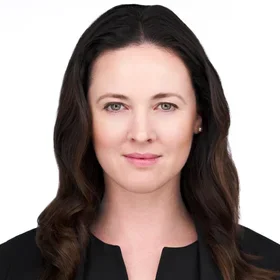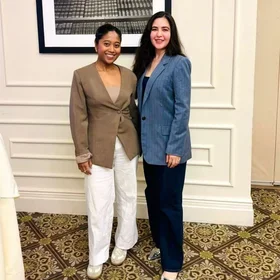With a B.S. in Business Administration from Rockford University, a small liberal arts school in northern Illinois, Ritu Kumar’s early career spanned finance, marketing, and international business development. But a job she took in 2009 as an Admissions Consultant at Kaplan Higher Education drew her to her passion. A year into her employment there, her position evolved with a promotion to Advisor Coach/Knowledge Management (KM) Strategist, which let her take a key role in a pilot program to capture Kaplan’s tacit knowledge, develop taxonomies and repositories, and integrate social media networking tools. She found KM appealing and wanted her second master’s to be from an Ivy League school to strengthen this new branch of knowledge in her career. Columbia University was her first and only choice.
She was already familiar with Columbia’s School of Professional Studies because she’d been accepted for another master’s program there in 2011 but chose not to pursue that path because she sought a hybrid format—a combination of on-campus and online instruction. She was well-versed with online study and networking not only from her job at Kaplan but from obtaining her marketing MBA online in the mid-2000s, when that concept was still new.
Columbia’s M.S. in Information and Knowledge Strategy (IKNS) was the perfect fit. Kumar quickly reaped the benefits of the program’s online coursework and collaboration when she began in Fall 2012—only two months earlier, she had given birth to her daughter, Myla. “For the first residency, I had major challenges with childcare and almost had to withdraw. The IKNS faculty saw my passion for the program and arranged for me to connect via Skype.” Kumar admits the solution wasn’t ideal as she missed out on much of the experience of connecting with classmates and faculty but that, in the end, it worked. She continues to appreciate the format, especially having the program’s sessions archived online. “I have an infant so I love that I can go back in the next morning and absorb it when I’m fully alert.”
“The network of talented people in knowledge management is unique to Columbia. You won’t get that elsewhere.”Ritu Kumar
Knowledge Manager, Cornerstone OnDemand
Another factor that convinced her the IKNS program was her best choice was the Columbia network. “The biggest thing that Columbia offers that’s such a huge advantage is the breadth of the network, in terms of the guest lecturers, whether online or at the residencies,” Kumar says. “The network of talented people in knowledge management is unique to Columbia. You won’t get that elsewhere.”
By December 2012, Kumar was anxious to see where her eventual degree could take her and began scouting out positions in the field. Due to a scarcity of knowledge jobs in South Florida, where she was then living, she expanded her search nationwide. “My only goal was to interview and get comfortable in this particular field,” she says. “When I graduated, I wanted to be ready for any opportunity that might arise.”
She applied for eight positions and received four calls back. After a battery of interviews with three prospects, she was given two job offers. One was too tempting to resist, with a pay increase, paid relocation, and work in a field Kumar now considers her career: a position as Knowledge Management Strategist at Hewlett-Packard. The multinational IT corporation was so taken with her ability, they let her choose any its offices nationwide from which to work for her first year, recognizing the value of face-to-face contact in building her initial business relationships. She picked Austin, Texas, where she moved with her family this Spring and began work for the firm’s new public cloud service, HP Cloud Services. There, Kumar managed explicit and tacit knowledge to improve collaboration at HP and promote effective records management. She also took charge of the division’s KM software tools, including its intranet, wikis, and SharePoint platform.
This summer, Kumar decided she preferred Florida to Texas, “culturally and geographically,” and after committing to move back, received another alluring offer. Cornerstone OnDemand, a leader of cloud-based talent management software solutions, wanted her for a Knowledge Manager position and raised the ante with an increased salary and the ability to work from home. She took the offer and now leads a KM department that has broad impact in the client success arena.
Through the remainder of her time in the IKNS program, Kumar continues to build applicable skills, including enhancing her knowledge on building a taxonomy, understanding metadata, and gaining a competitive advantage through business analytics. The course that has had the most practical application for her so far has been Building Successful Knowledge Services for Organizations, taught online by Dr. Edward J. Hoffman, which she says has been very helpful for developing KM strategy.
Although her KM experience began at Kaplan, Kumar credits the IKNS program for her success in securing so much interest from HP, Cornerstone, and several potential employers.
“I don’t believe there’s any way I would have pulled this off without the Columbia branding, the knowledge I’ve gained from the program, and Kate’s [Katrina Pugh, IKNS Academic Director] mentorship,” she says.
Knowledge management is not only here to stay, she adds, it only will grow in importance with time. “I consider it being IT when IT was sort of new in the ’80s and everyone wanted to start getting into it,” she says. “Knowledge management is going to be like that in the next decade. It’s going to be in demand. You don’t even have to work in the knowledge domain because you can use what you learn to improve your organization and collaboration.”


